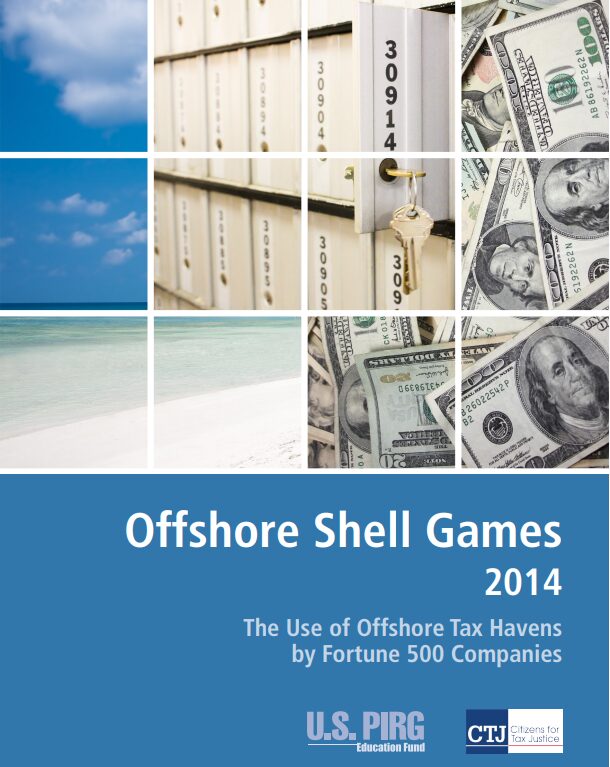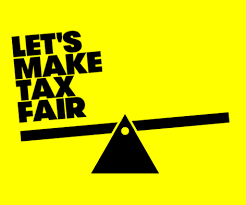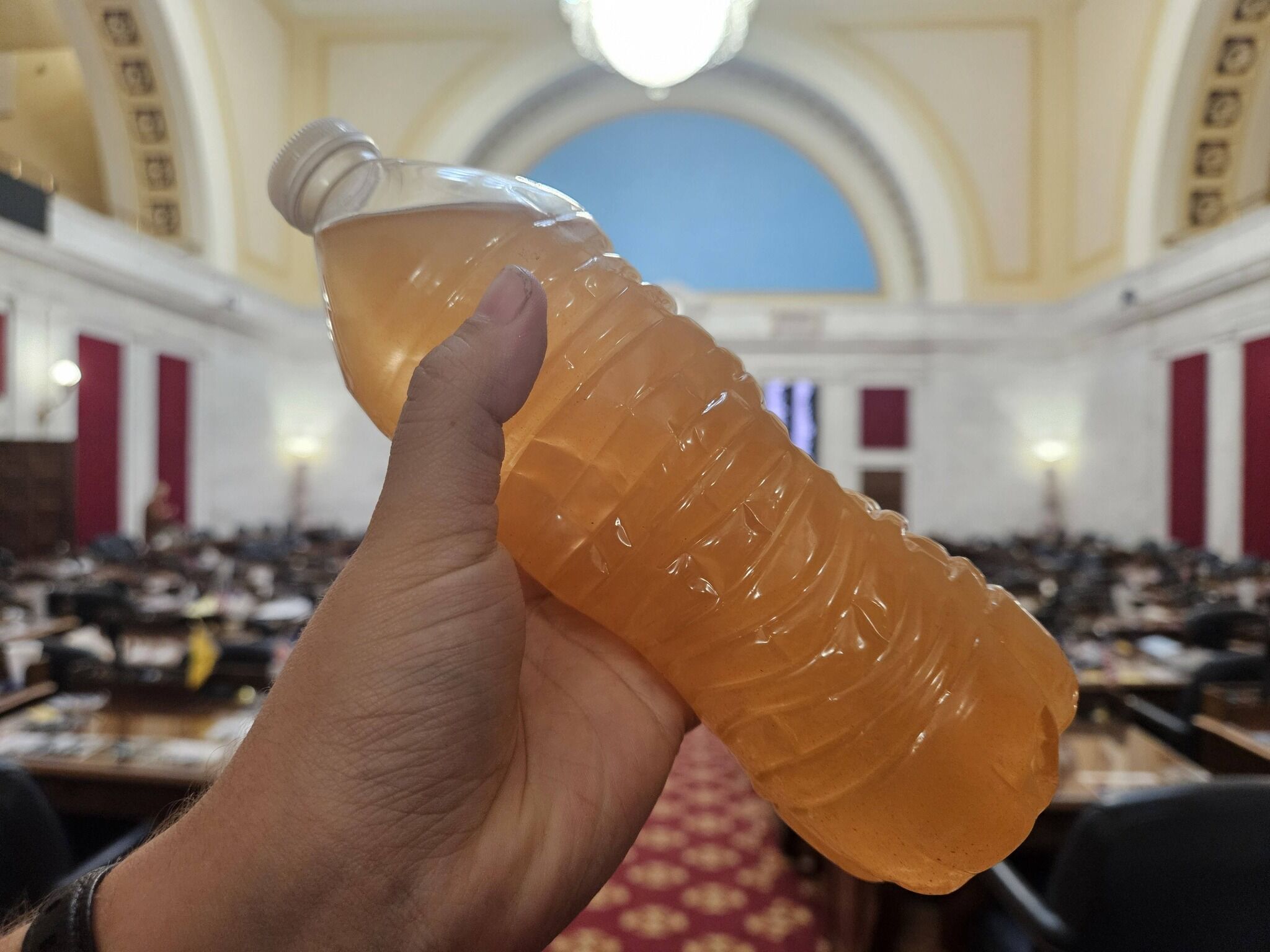- Like
- Digg
- Del
- Tumblr
- VKontakte
- Buffer
- Love This
- Odnoklassniki
- Meneame
- Blogger
- Amazon
- Yahoo Mail
- Gmail
- AOL
- Newsvine
- HackerNews
- Evernote
- MySpace
- Mail.ru
- Viadeo
- Line
- Comments
- Yummly
- SMS
- Viber
- Telegram
- Subscribe
- Skype
- Facebook Messenger
- Kakao
- LiveJournal
- Yammer
- Edgar
- Fintel
- Mix
- Instapaper
- Copy Link

Richard Phillips, Citizens for Tax Justice
Steve Wamhoff, Citizens for Tax Justice
Dan Smith, U.S. PIRG Education Fund
Executive Summary
Many large U.S.-based multinational corporations avoid paying U.S. taxes by using accounting tricks to make profits made in America appear to be generated in offshore tax havens—countries with minimal or no taxes. By booking profits to subsidiaries registered in tax havens, multinational corporations are able to avoid an estimated $90 billion in federal income taxes each year. These subsidiaries are often shell companies with few, if any employees, and which engage in little to no real business activity.
Congress has left loopholes in our tax code that allow this tax avoidance, which forces ordinary Americans to make up the difference. Every dollar in taxes that corporations avoid by using tax havens must be balanced by higher taxes on individuals, cuts to public investments and public services, or increased federal debt.
This study examines the use of tax havens by Fortune 500 companies in 2013. It reveals that tax haven use is ubiquitous among America’s largest companies, but a narrow set of companies benefit disproportionately.
Most of America’s largest corporations maintain subsidiaries in offshore tax havens. At least 362 companies, making up 72 percent of the Fortune 500, operate subsidiaries in tax haven jurisdictions as of 2013.
• All told, these 362 companies maintain at least 7,827 tax haven subsidiaries.
• The 30 companies with the most money officially booked offshore for tax purposes collectively operate 1,357 tax haven subsidiaries.
Approximately 64 percent of the companies with any tax haven subsidiaries registered at least one in Bermuda or the Cayman Islands—two notorious tax havens. Furthermore, the profits that all American multinationals—not just Fortune 500 companies— collectively claim were earned in these island nations in 2010 totaled 1,643 percent and 1,600 percent of each country’s entire yearly
economic output, respectively.
Six percent of Fortune 500 companies account for over 60 percent of the profits reported offshore for tax purposes. These 30 companies with the most money offshore— out of the 287 that report offshore profits— collectively book $1.2 trillion overseas for tax purposes.
Only 55 Fortune 500 companies disclose what they would expect to pay in U.S. taxes if these profits were not officially booked offshore. All told, these 55 companies would collectively owe $147.5 billion in additional federal taxes. To put this enormous sum in context, it represents more than the entire state budgets of California, Virginia, and Indiana combined. Based on these 55 corporations’ public disclosures, the average tax rate that they have collectively paid to 2 Offshore Shell Games 2014 other countries on this income is just 6.7 percent, suggesting that a large portion of this offshore money is booked to tax havens.
This list includes:
• Apple: Apple has booked $111.3 billion offshore—more than any other company. It would owe $36.4 billion in U.S. taxes if these profits were not officially held offshore for tax purposes. A 2013 Senate investigation found that Apple has structured two Irish subsidiaries to be tax residents of
neither the U.S.—where they are managed and controlled—nor Ireland—where they are incorporated. This arrangement ensures that they pay no taxes to any government on the lion’s share of their offshore profits.
• American Express: The credit card company officially reports $9.6 billion offshore for tax purposes on which it would otherwise owe $3 billion in U.S. taxes. That implies that American Express currently pays only a 3.8 percent tax rate on its offshore profits to foreign governments, suggesting
that most of the money is booked in tax havens levying little to no tax. American Express maintains 23 subsidiaries in offshore tax havens.
• Nike: The sneaker giant officially holds $6.7 billion offshore for tax purposes, on which it would otherwise owe $2.2 billion in U.S. taxes. That implies Nike pays a mere 2.2 percent tax rate to foreign governments on those offshore profits, suggesting that nearly all of the money is officially held by subsidiaries in tax havens. Nike does this in part by licensing the trademarks for some
of its products to 12 subsidiaries in Bermuda to which it then pays royalties.
Some companies that report a significant amount of money offshore maintain hundreds of subsidiaries in tax havens, including the following:
• Bank of America reports having 264 subsidiaries in offshore tax havens—more than any other company. The bank officially holds $17 billion offshore for tax purposes, on which it would otherwise owe $4.3 billion in U.S. taxes. That means it currently pays a ten percent tax rate to foreign governments on the profits it has booked offshore, implying much of those profits are
booked to tax havens.
• PepsiCo maintains 137 subsidiaries in offshore tax havens. The soft drink maker reports holding $34.1 billion offshore for tax purposes, though it does not disclose what its estimated tax bill would be if it didn’t keep those profits booked offshore for tax purposes.
• Pfizer, the world’s largest drug maker, operates 128 subsidiaries in tax havens and officially holds $69 billion in profits offshore for tax purposes, the third highest among the Fortune 500. Pfizer recently attempted the acquisition of a smaller foreign competitor so it could reincorporate on paper as a “foreign company.” Pulling this off would have allowed the company a tax-free way to use its
supposedly offshore profits in the U.S..
Corporations that disclose fewer tax haven subsidiaries do not necessarily dodge fewer taxes. Many companies have disclosed fewer tax haven subsidiaries, all the while increasing the amount of cash they keep offshore. For some companies, their actual number of tax haven subsidiaries may be substantially greater than what they disclose in the official documents used for this study. For others, it suggests that they are booking larger amounts of income to fewer tax haven subsidiaries.
Consider:
• Citigroup reported operating 427 tax haven subsidiaries in 2008 but disclosed only 21 in 2013. Over that time period, Citigroup more than doubled the amount of cash it reported holding offshore. The company currently pays an 8.3 percent tax rate offshore, implying that most of those profits have been booked to low- or no-tax jurisdictions.
• Google reported operating 25 subsidiaries in tax havens in 2009, but since 2010 only discloses two, both in Ireland. During that period, it increased the amount of cash it reported offshore from $7.7 billion to $38.9 billion. An academic analysis found that as of 2012, the 23 no-longer-disclosed
tax haven subsidiaries were still operating.
• Microsoft, which reported operating 10 subsidiaries in tax havens in 2007, disclosed only five in 2013. During this same time period, the company increased the amount of money it reported holding offshore by more than 12 times. Microsoft currently pays a tax rate of just 3 percent to foreign governments on those profits, suggesting that most of the cash is booked to tax havens.
Strong action to prevent corporations from using offshore tax havens will restore basic fairness to the tax system, make it easier to avoid large budget deficits, and improve the functioning of
markets.
There are clear policy solutions policymakers can enact to crack down on tax haven abuse. Policymakers should end incentives for companies to shift profits offshore, close the most egregious offshore loopholes, and increase transparency.
PDF BELOW:
Read more about how WV CAG supports fair taxation in our work here.




